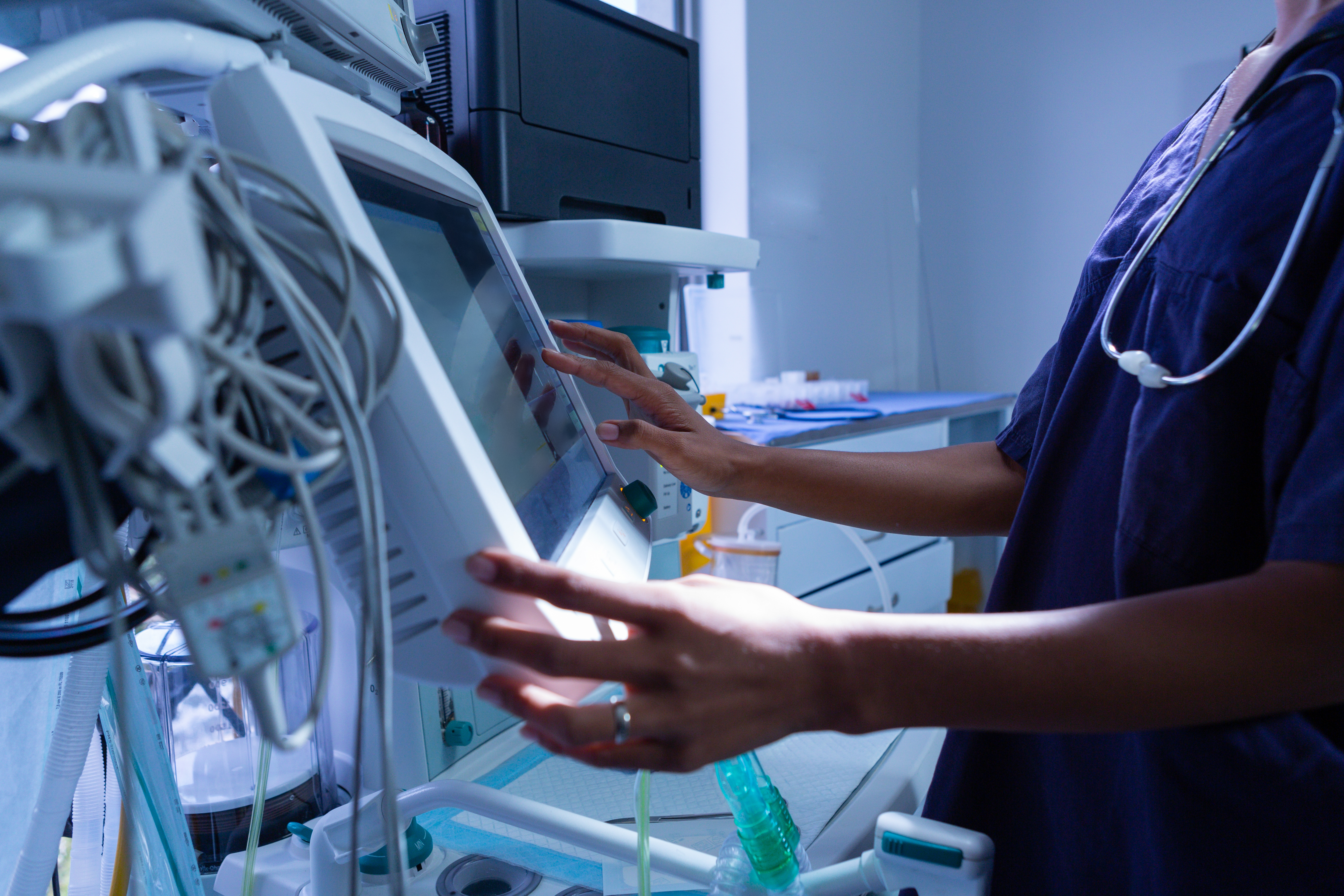Export Surge: SRNL Supports U.S. in Medical Export License Review Applications
When Russia invaded Ukraine in 2022, the United States placed heavy restrictions on exports to that country, as well as Belarus. Now, two years after the conflict began, a surge in export license applications for American-made, medical-related items are being requested from the countries.
According to the U.S. Department of Commerce’s (DOC) International Trade Administration, about 95 percent of items exported out of the U.S. don’t require an export license. When a product falls into the other five percent, though, it becomes subject to a review process to obtain a license. Any item that can be labeled as “dual use” in nature falls into the seemingly small, but impactful five percent. The National Nuclear Security Administration (NNSA) defines dual use as any item that has “important uses in clean energy, modern medicine, advanced imaging techniques, sterilized equipment, and other applications,” but also has “legitimate civil and military applications” for weapons of mass destruction (WMDs).
To obtain an export license, dual use items go through a review process where four U.S. government organizations, including the Department of Energy (DOE) through NNSA’s Office of Nonproliferation and Arms Control (NPAC), conduct risk assessments and recommend outcomes. NPAC’s license review process consists of three steps: 1.) technical review, 2.) first sign off (FSO), and 3.) second sign off (SSO).
NPAC partners with Savannah River National Laboratory (SRNL) to control the transfer of nuclear and WMD-related materials. When the Russian medical export license applications began to pour in, SRNL was one of three national labs selected to assist with the review process.
“Headquarters [DOE-HQ] recognizes that we have the expertise here at the lab to provide surge support in these areas when needed,” said Lauren Jackson, deputy program manager for the Export Control Review, Compliance, and Interdiction (ECRC/I) program at SRNL. Jackson, who works within the Nonproliferation Policy Support group in SRNL’s Global Security Directorate (GSD), has played an integral role in reviewing the applications.

Surgeon using medical equipment in operating room of hospital. (Adobe Stock image)
To date, Jackson has performed technical reviews of 162 Russian export license applications in support of the ECRC/I program. Applications are placed into a queue within a database managed by the DOC and dispersed amongst the review organizations. There are generally around 500 new applications in the queue at any given time, and Jackson says the last time she checked, 149 of those new applications were for Russian medical export licenses. Each application must be processed within 30 days.
During the technical review phase, Jackson assessed medical items and devices to determine how many were being shipped and whether they could have connections to proliferation concerns, military, or terrorist organizations. She also helped to affirm that the items being requested were of “reasonable use” for the end user.
Jackson received “gold star” reviews for her assessments, and as a result, she was authorized to perform FSO duties on all Russian medical cases.
“An FSO reviews the technical assessment, the license application as a whole, and any other information that’s relevant, and essentially recommends what the DOE’s position should be on the license application,” Jackson said. “There are four positions: approve, approve with conditions, return without actions, or deny.”
There is training associated with becoming an FSO, but Jackson’s previous position as a licensing officer at the Department of Defense (DOD) equipped her to jump right in to perform her duties. Since receiving authorization, Jackson has served as the FSO on 143 applications.
After the FSO is complete, the item moves into SSO, which can only be completed by federal employees of DOE-HQ.
Jackson says that the DOE ECRC/I group is the only one conducting reviews of export license applications, and licensing is an area where DOE will see substantial growth and have the most need in the future.
“The U.S. is using export controls as more of a tool of foreign policy more than they have in previous administrations, and they’re tightening controls specifically when it comes to [countries] like China,” Jackson said. “They expect the licensing requirements and burden to increase, so they are going to rely more heavily on the labs, so this opportunity positions us for more growth in this area in the future.”
Though a heavy lift, Jackson noted how this task is one she enjoys, and she hopes to assist more in the future because of its impact on national security.